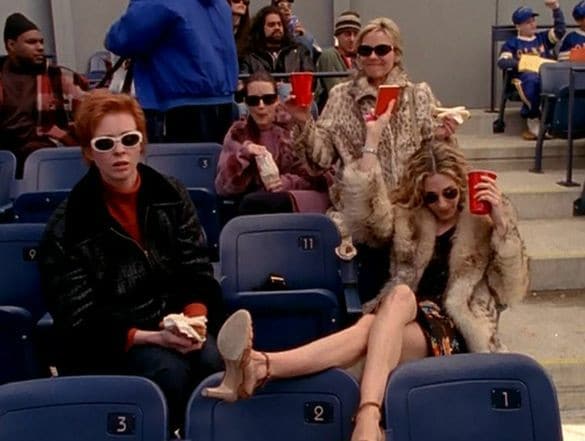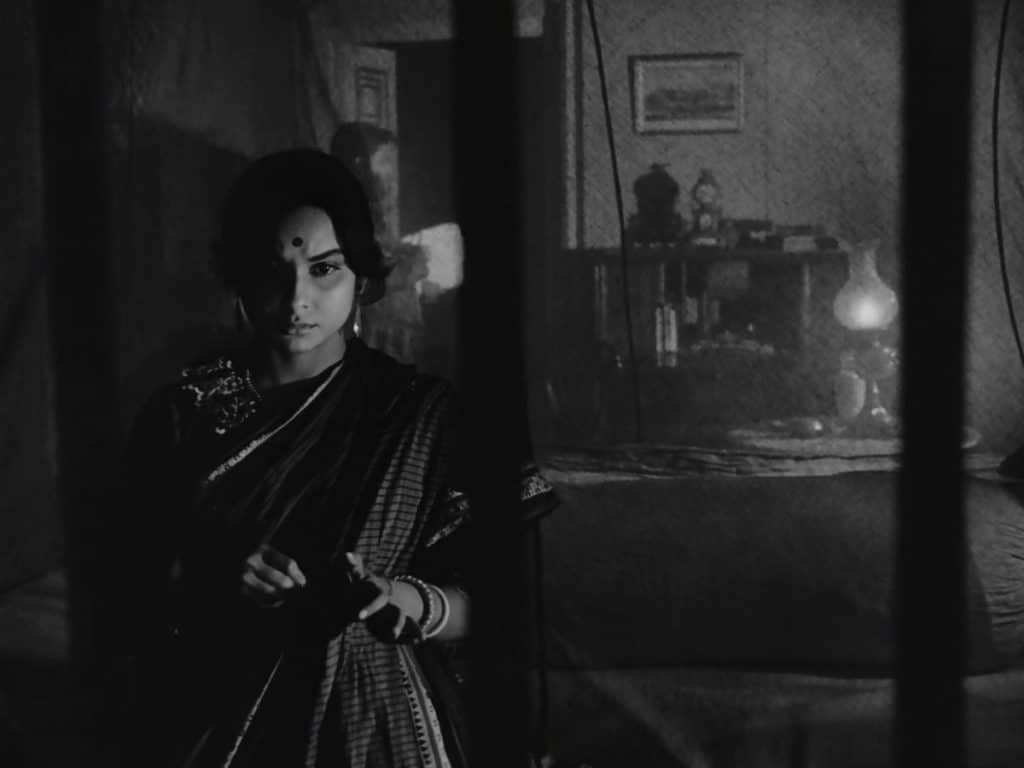Imagine having loved and idolized something all your life only to wake up someday to let it disappoint you with something you never quite perceived, it makes you question your own discretion. I had quite a similar plight when I acknowledged myself about the Bechdel test through some random article on my news feed.
For those who don’t know what a Bechdel test is, here’s a brief description, this is a media test developed by Liz Wallace and cartoonist Alison Bechdel as a practical joke inserted in one of her comics Dykes to Watch Out For, which basically aims at analysing how feminist a movie is, or rather, how male centric it is. The three criteria to be ticked off are:
1. Has two named female characters.
2. Has to have a conversation between the two female characters, with back and forth dialogues.
3. Has to talk about anything but a man or men.
Sounds pretty simple?
Turns out it’s not.
There’s an iconic film, with an eponymous TV series of the same, Sex and the City that once stood out from all the chick flicks our entire millennial generation grew up watching, it appeased to our impressionable minds because of how easily it made us believe we’re watching a film about women, solely about women.
The film looked promisingly empowering, if not entirely feministic, it showed us women all Manhattan-ed in their high paying jobs while balancing buoyant love lives and ritzy wardrobes. Ignoring the blaring, on-your-face unrealistic take on women that fails to represent a wide spectra of the population, let me hit straight to the other obvious problematic parts of the film.
The film gloriously managed to tick off the first two criteria of the test given its a film about four women, narrated by one of them and easing into conversation with each other every now and then. But when it comes to third criteria which is where most films fail to make a mark, Sex and The City too burst our bubble. The very introductory part where we are befriended with the characters by Carrie, she never makes an attempt to mention anything other than their respective sex lives, as if nothing other than that was worth to spoken about.
The very introductory part where we are befriended with the characters by Carrie, she never makes an attempt to mention anything other than their respective sex lives, as if nothing other than that was worth to spoken about.
The film sure does show the vulnerable, indecisive and impulsive side of the women, juggling with multiple issues at a time, but it tries too hard to make us empathize with their certain idiosyncrasies that can hardly go unnoticed. And let’s not even boil it down to the inherent racial supremacy the characters enjoy for their westernized selves. But that calls for an entirely different article.
The blow felt more injuring when it was closer to home. *Mic drop*
Ray’s Feluda.
The very book that once held a remarkable part in stimulating my curious senses of a 9 year old mind, and never made me question the nuances of Ray, somewhere forced me ponder over the striking absence of a single impactful female character in an anthology of elaborate 36 tales. We were not even acquainted with Topshe’s mother, in fact funnily enough even the goons were dominantly male, it’s almost like we women can’t even make for a good deal of notoriety (that’s a horrible argument but you get my point, right?). But he made up for it in his filmographic ventures, precisely his studied and discerning adaptations of Tagore. I have seen most my peers adoring Harry Potter, Star Wars, Avatar in my growing years(I haven’t watched the last two properly yet and watched and read Harry Potter at a ripe age of 18, that too owing to the unrelenting insistence of my best friend, my disinclination to them demands for another conversation, and no it’s not because of some literary elitism) but all three films unbeknownst to us is another product of the masculine mill of media that takes men on a ride leaving the women struggling to even have a two way conversation with each other in the duration of some rough and average 2 hours and 30 minutes.
I have seen most my peers adoring Harry Potter, Star Wars, Avatar in my growing years(I haven’t watched the last two properly yet and watched and read Harry Potter at a ripe age of 18, that too owing to the unrelenting insistence of my best friend, my disinclination to them demands for another conversation, and no it’s not because of some literary elitism) but all three films unbeknownst to us is another product of the masculine mill of media that takes men on a ride leaving the women struggling to even have a two way conversation with each other in the duration of some rough and average 2 hours and 30 minutes.
How appalling is that?
It might be a sheer inadequacy on part of the screenwriter to not produce storylines that accounts for more participating roles of women, or even more disconcertingly, on part of the audience that absent-mindedly prefers to consume the supremely toxic ideology that female driven movies do not provide for a commercially worthy film in Box office.
But then everything is not grey tinted, we have a lot to look forward to, we have our very own Bollywood that’s taking baby steps to acknowledge and embrace women in more evolved roles (let’s ignore we still have our leading ladies in films like Veere Di Wedding, that in itself is a manifested and a maneuvered form of a facepalm and something that gloriously craps over the Bechdel Test), like Lipstick Under My Burkha, Parched, Raazi, Neerja, Angry Indian Goddesses, Margarita With A Straw, The Girl in the Yellow Boots and many more. Bechdel Test though widely executed and even revered, has its limitations.
Bechdel Test though widely executed and even revered, has its limitations.
Given how much the test has catered to the minds of audience these days as a parameter to decide if a film is progressive enough, many media teams might manipulate and orchestrate their storyline to align with the criterion and come out as a clean film. It primarily and plainly has to just introduce authentic female characters and initiate a fitting conversation to strike off the third point. It makes for a well thought marketing gimmick to yet again feed to a farce belief in the audience that they are being served safe art. It was never meant to measure and analyse the in depth execution of a character, which might result in incorrect evaluation of an actually good film.
Also the Bechdel test fails to accommodate films and works that contain a more abstract theme of feminine dominance, like the vintage works of Tagore, namely Charulata, Nouka Dubi, Chokher Bali, all of which safely contribute to a much healthier arena of gender acceptance, that fishes out a discerning representation of the 19th century women, struggling with more severe patriarchy.
But as responsible viewers, it’s also our responsibility to draw a fine line between what should appeal to our senses and what shouldn’t. There’s absolutely no test that could be devised to uplift, or at least, supervise if we are willingly feeding ourselves with something toxic. Now that I have questioned my younger discretion, I will be much more cynical and judicious about the movies and other form of arts I’d be served, and decide if that should make me change the way I see the world.
